In what was supposed to be the final round of negotiations for a global treaty to end plastic pollution, delegates from over 170 countries failed to reach a binding agreement after a week of discussions in Busan, South Korea. The talks will now continue next year at a meeting yet to be scheduled.
This was the fifth round of negotiations since UN member states first agreed in March 2022 to draft a treaty on plastic pollution, setting a deadline for the end of 2024. Yet significant disagreements over the treaty’s scope remain as that deadline is set to pass.
A large number of countries have clubbed together as part of a ‘high ambition coalition’ that wants the treaty to include commitments on reducing production of virgin plastics and banning particular hazardous classes of chemicals from use in plastic manufacture. However, while the treaty was originally intended to ‘address the full lifecycle of plastics’, a smaller number of oil-producing countries have continually sought to shift the treaty’s focus away from production and instead want it to focus on waste management and recycling.
At the latest meeting in Busan, the delegation from Rwanda put forward a motion calling for the treaty to include ‘a global target to reduce the production of primary plastic polymers to sustainable levels’ and to establish an ‘obligation to phase out the most harmful plastic products and chemicals of concern’. That motion was supported by 85 countries, while over 100 countries supported Panama’s proposal that includes a stipulation for each country to report statistical data on plastic production and measures taken to achieve an agreed reduction target.
Despite the broad support for those proposals, opposition from a small group, which includes Russia, Iran, China and Saudi Arabia, has delayed an agreement on the treaty text.
I have not heard a single delegate saying they do not want this treaty
Inger Andersen, executive director of the UN Environment Programme
‘In Busan, despite the lack of a final agreement, we cheered the rise of a growing group of about 100 countries demanding an ambitious agreement to end plastic pollution, including reducing the sources and harms of plastic pollution to people and nature,’ said Margaret Spring, the chief conservation and science officer at Monterey Bay Aquarium, who chairs the International Science Council’s expert group on plastic pollution. ‘There is a path ahead: [treaty negotiation chairperson] Luis Vayas Valdevieso, has given governments a solid foundation from which to build that agreement and everyone has work to do before the chair reconvenes the meeting again next year.’
‘Negotiators need to be resolved, and work with urgency to agree on a strong treaty with binding measures across the full life cycle that will effectively protect human health and the environment from the adverse impacts of plastic production,’ she added. ‘This means including binding provisions to address the drivers of such harms, from reducing the production of primary plastics to eliminating or phasing out problematic plastic products and chemicals of concern.’
The science is clear: a treaty that protects human health and the environment needs to address the issues of plastic production and chemicals
Bethanie Carney Almroth, University of Gothenburg, Sweden
The Scientists Coalition for an Effective Plastics Treaty – a group that offers impartial evidence to policymakers, and that sent 70 members to observe the meeting in Busan – released a statement noting that it was encouraging to see the most recent talks better reflect the ‘upstream causes and the full lifecycle impacts of plastic pollution’.
‘The science is clear: a treaty that protects human health and the environment needs to address the issues of plastic production and chemicals,’ said Bethanie Carney Almroth an expert on the impact of plastics in the environment from the University of Gothenburg, Sweden. ‘If the text is improved by strengthening provisions on plastics production and chemicals of concern, then the treaty will more effectively contribute to end plastics pollution and the harms it causes.’
As the meeting in South Korea drew to a close, the UN Environment Programme’s executive director Inger Andersen noted that ‘it is clear that divergence persists’, but that it was critical to get the treaty text right. ‘I have not heard a single delegate saying they do not want this treaty,’ she added. ‘We just need more time to craft a meaningful outcome: an instrument that hits the problem hard instead of punching below its potential weight.’





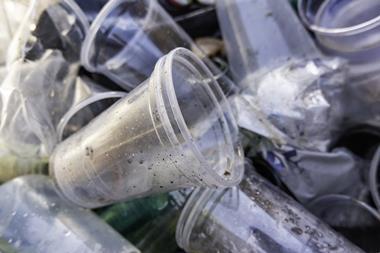

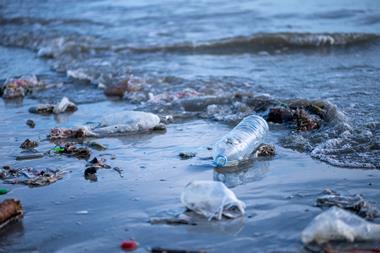
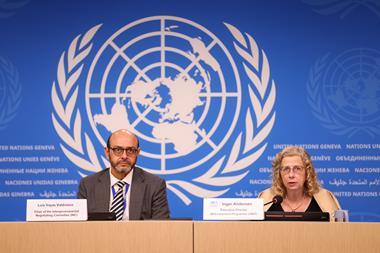
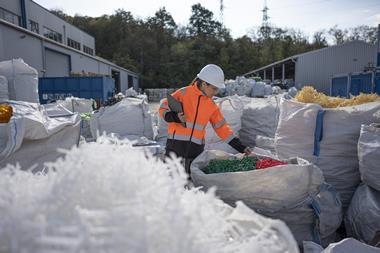
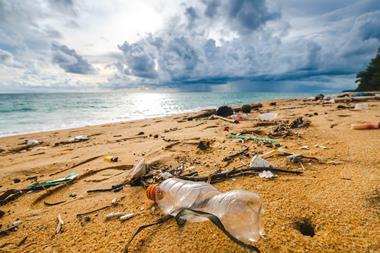






No comments yet